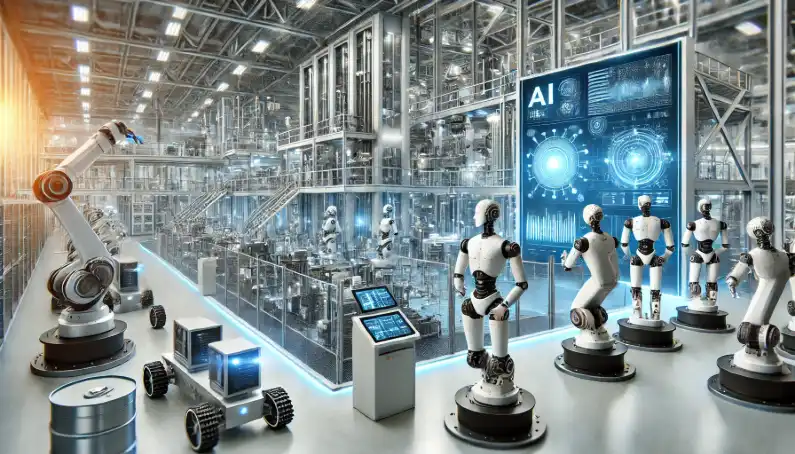Artificial intelligence (AI) is reshaping the automation landscape in a variety of industries, from manufacturing to financial services. As the technology advances, companies are finding new ways to incorporate AI to improve efficiency, reduce costs and open up new market opportunities. This article explores how AI is changing the industry and what we can expect in the future.
Key Developments in Automation with AI
AI Applications in Manufacturing
In the manufacturing sector, AI is facilitating the transition to smarter, more automated factories. Generative AI systems are being used to optimize supply chains, predict machine maintenance and improve the quality of the final product. The implementation of intelligent robots capable of learning and adapting to new situations is also transforming production processes.
Innovation in Financial Services
In finance, Generative AI is revolutionizing the way institutions interact with their customers. AI-powered chatbots offer 24/7 customer support, while machine learning algorithms analyze large volumes of data to personalize services and detect fraud more efficiently. In addition, automating repetitive tasks frees employees to focus on more strategic and creative tasks.
Impact on Logistics and Transportation
Improvements in Logistics
Logistics is benefiting enormously from intelligent automation. Generative Artificial Intelligence is optimizing delivery routes in real time, managing inventories autonomously and improving efficiency in distribution centers. These advances not only reduce delivery times but also minimize the operational and environmental costs associated with transportation.
Transportation Transformation
Transportation is undergoing a revolution with the development of autonomous vehicles. Not only is AI driving the creation of autonomous cars, but it is also being used to improve the safety and efficiency of public and private transportation. With the promise of reducing accidents and optimizing traffic flow, AI in transportation could completely change our cities.
Expansive Applications of Generative AI in Various Sectors
Revolution in Health Care
Artificial intelligence is revolutionizing medical care through automated diagnosis and personalized treatment. AI systems analyze medical images with superhuman precision to detect diseases early, and advanced algorithms recommend treatments based on patient clinical history and genomics. In addition, healthcare chatbots are providing continuous support and patient monitoring, which improves health outcomes and the efficiency of medical services.
Advances in the Agricultural Sector
In agriculture, Generative AI is optimizing from planting to harvest. Drones and smart sensors monitor crop and soil conditions in real time, enabling precise interventions that increase yields and reduce resource use. Artificial intelligence is also helping to forecast adverse weather patterns, allowing farmers to make proactive decisions to protect their crops and improve the sustainability of their practices.
Innovation in the Energy Sector
AI is transforming the energy industry by optimizing energy distribution and consumption. Smart systems manage power grids in real time to balance supply and demand, while predictive algorithms help prevent failures and optimize infrastructure maintenance. In addition, Generative AI is accelerating the development of renewable energy by improving the efficiency of solar panels and wind turbines through automatic adjustments based on weather and consumption patterns.
Impact on tourism and entertainment
In the hospitality and entertainment industry, AI is personalizing the user experience at an unprecedented level. From algorithms that suggest travel destinations and accommodations to systems that manage inventories and personalize entertainment offerings, artificial intelligence is improving customer satisfaction and optimizing operations. In theme parks, for example, AI is being used to manage visitor flows and personalize experiences, improving both operational and customer efficiency.
These examples illustrate the versatility and transformative potential of AI in numerous sectors, promising a future where advanced technology and innovation continue to open up new possibilities for improving quality of life and business efficiency.


